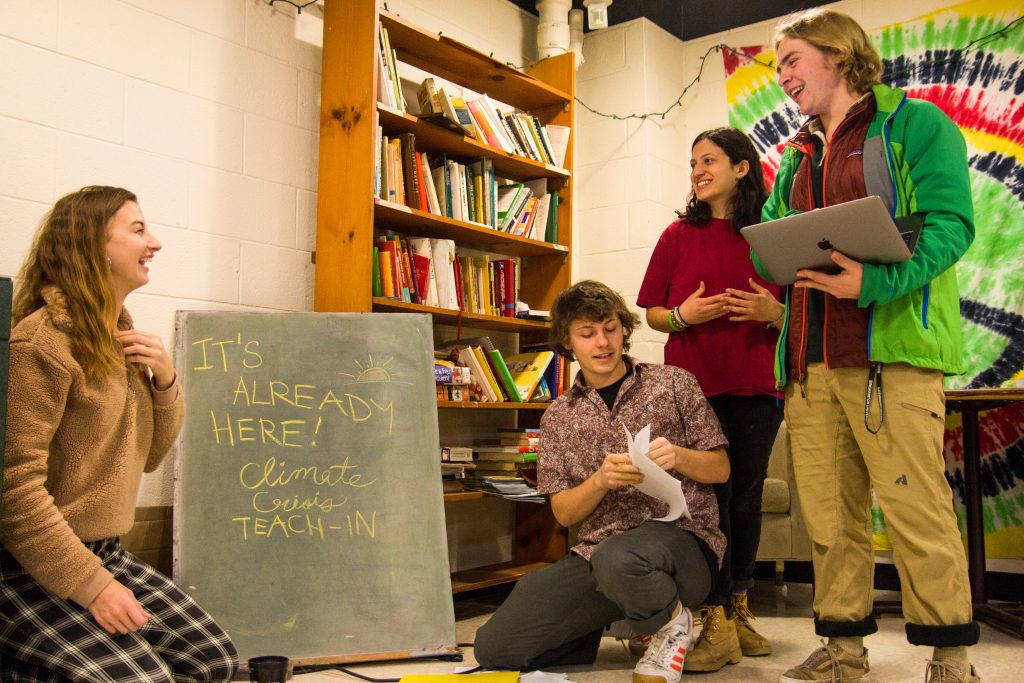
The Food Co-op will be hosting daily workshops known as the “Climate Crisis Teach-In” for the coming week. Each workshop will discuss a different aspect of climate change and how it affects the Binghamton community, including examining agricultural practices or the environmental history of Broome County.
The workshops are inspired by a 2018 report by the Intergovernmental Panel on Climate Change (IPCC), an body within the United Nations, that stated that nations have until the year 2030 to cut carbon emissions in half to avoid irreversible effects from climate change, such as a global temperature rise of about 2 degrees and diminishing of coral reefs.
Isabel Jordan, a member of the Food Co-op and a freshman majoring in philosophy, politics and law, said that the idea for the workshop series came from conversations she and other members had after the report was released.
“Concerned students and friends of mine discussed this report often and determined that we must do all that we can to not only educate our fellow students about the dangers of climate change, but confront the dangerous cultural assumptions that have brought our planet to this tipping point,” Jordan said.
The series consists of one workshop from Feb. 18 to 22. Each workshop follows a theme, such as the environmental history of Broome County and scientific findings on climate change and what they mean.
Jordan said the daily workshops are meant to bring out new narratives that students may not have heard before.
“The week-long workshop series is meant to address some dominant narratives that we feel have allowed a perpetual delay of solutions,” Jordan said. “For example, many powerful people and institutions invest complete faith in technology and claim that we can simply innovate ourselves out of this mess. We see this as a form of climate change denial.”
Jordan said that the Food Co-op plans to make more workshops on this topic in the future because Binghamton students should learn as much as they can about topics like this while they are here.
“Binghamton students will enter many fields and it is important that each and every one graduates with an earth education as well as their diploma,” Jordan said. “We hope that our short time in university can be used most productively to energize our age group.”
Workshops will take place in the Food Co-op in the University Union Undergrounds and in the Hinman Commons.
“Another End of The World is Possible: Re-imagining Collapse” will be held from 4 p.m. to 6 p.m. on Monday, Feb. 18 in the Food Co-op and 6-8 p.m. in Hinman Commons.
“Ever Upward: An Environmental Justice History of Broome County” will be held from 3 p.m. to 5 p.m. and 6 p.m. to 8 p.m. on Tuesday, Feb. 19 in Hinman Commons.
“Breaking the Frame: Confronting Science and Technology” will be held from 4 p.m. to 6 p.m. on Wednesday, Feb. 20 in the Food Co-op and 6 p.m. to 8 p.m. in Hinman Commons.
“Women / Wilderness: Eco-feminism and Climate Change” will be held from 3 p.m. to 5 p.m. on Thursday, Feb. 21 in the Food Co-op and 6 p.m. to 8 p.m. in Hinman Commons.
“Beyond Sustainability: Regenerative Agriculture” will be held from 3 p.m. to 5 p.m. on Friday, Feb. 22 in Hinman Commons and 6 p.m. to 8 p.m. in the Food Co-op.


